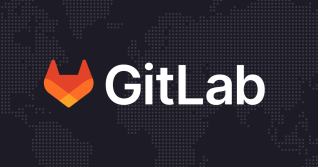When IT leaders at one of the UK’s largest retailers wanted to better support and strengthen the business, they created a culture where everyone on their DevSecOps teams could work together more naturally.
“DevSecOps is a mindset and mindset is a cultural thing,” said Paul Kerrison, director of Engineering and Architecture at Dunelm, a $1.6 billion (GBP) British home furnishings retailer. “Culture isn’t just a buzzword or something nice to have. There's a genuine value. It builds trust with not just the technology teams but with the wider business as a whole. That allows us to move faster and more safely.”
Kerrison, along with Jan Claeyssens, Dunelm’s DevSecOps principal engineer, talked about creating this cultural shift during GitLab’s DevSecOps World Tour event in London this fall. The 44-year-old company, which is traded on the London Stock Exchange and employs more than 11,000 people, adopted GitLab in 2020. They have been using the end-to-end platform to not only increase software development productivity and efficiency but to build inclusive teams that are focused on sharing responsibility for security.
On stage with Grigoriy Shlyapinkov, strategic customer success manager at GitLab, Claeyssens told the audience it’s been critical to cut out an us-versus-them mentality that existed between developers and security engineers. Working hard to break down those barriers, he said they’ve created a new cohesive environment.
Dunelm’s DevOps teams had been working together pretty well before the culture shift, but now they’re collaborating on a different level.
Embedding security into the team
“I think we can all agree that in 2023 you can no longer say you have good software if it isn't secure,” said Claeyssens. “We have to lean in and really listen to what problems other people are facing, and then figure out how to help them. We all work at Dunelm for the same thing – to make the business better. So we need to solve problems together and that’s going to be a continuous journey. This culture will require daily effort.”
That effort, though, is eased by using GitLab because everyone – from developers to security and the C-suite – can use the end-to-end platform to gain visibility into every project, Claeyssens noted.
“With the platform we can serve all our users where they live,” he said. “It’s one of GitLab’s mantras. If you have everything in one place, all colleagues can see all the features, and in the end, that puts us on a journey together.”
Making room at the table
Kerrison said by rewarding positive behaviors and giving security team members a seat at what had once been an exclusive table, everyone can pick up the security mantle.
“Including security in the leadership team and having them work closely with the engineering teams is key,” he said. “You can’t improve security if it's seen as a second-class citizen.”
And part of making it easier for everyone to be aware of and work on security is about using automation features built into the GitLab platform, according to Claeyssens. “The platform is about automating security,” he said. “You have all the security scanners in GitLab – everything. We use the compliance frameworks. The vulnerability scanning. The scan result policies. It makes all our lives a little bit easier.”
That holistic approach to DevSecOps is what made Dunelm adopt GitLab in the first place. “GitLab sold us on the dream of the whole suite of features, and I'll be honest, I didn't know where GitHub was at the time,” said Claeyssens. “There were only so many contenders. That's how we ended up with GitLab.”
Looking ahead to working with AI
When asked about using artificial intelligence-assisted tools to cut down on DevSecOps workloads, Kerrison said it’s really easy right now to get caught up in all the buzz about AI. Their work with it will likely start, he explained, with using AI for specific tasks, like code generation, vulnerability checks, and refactoring code. Then as it advances, the technology could start to give engineers real-time feedback on code as they’re writing it.
Referencing Star Trek character Captain Jean-Luc Picard asking the starship’s food replicator for “tea, Earl Grey, hot,” Kerrison said he’s looking forward to the day he can order up microservice deliveries and the smart system will create automated testing, along with security and vulnerability scanning.
What Kerrison’s really waiting for, though, are AI tools that have actual agency to be predictive, considering what projects and teams need assistance and then launching that work. “It would be much more trusted and can go out to find problems and fix them,” said Kerrison. “Then engineers can start to focus more on the what than the how. That’s where the power will be. Although until AI gets to the place where it can sort and pair socks after they've been through the washing, I don't think we're quite there yet.”
Dunelm, which uses GitLab Ultimate, has distribution centers, 178 stores, and a robust ecommerce operation. The company sees more than 12 million online transactions per year, while maintaining a large online catalog. More than ever, Dunelm relies on innovative technology engineering to improve customer experiences.
Read more GitLab customer stories on our customers page.




